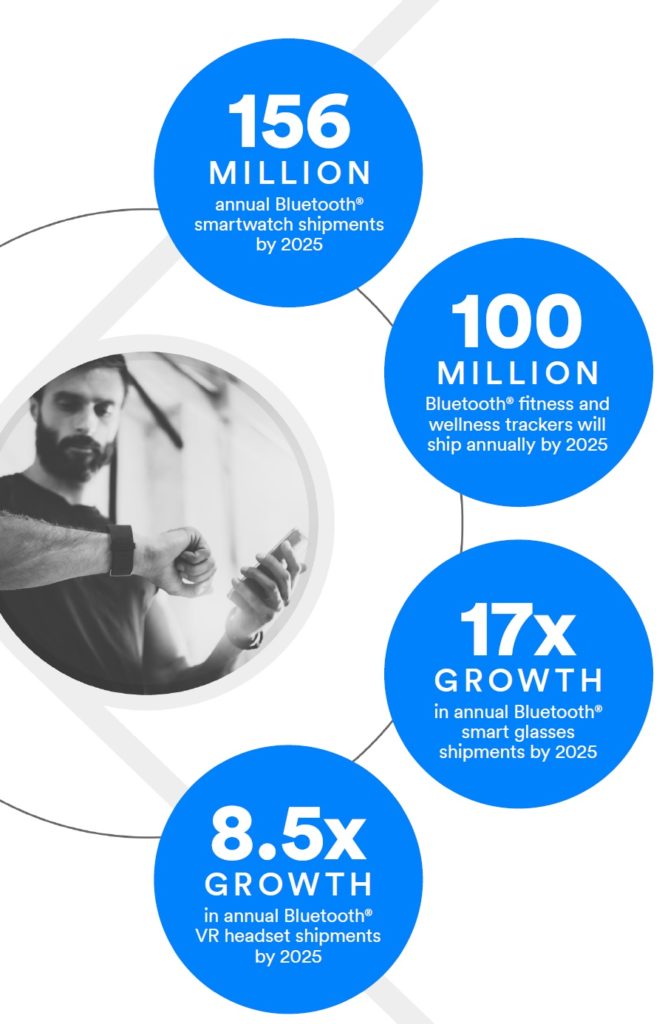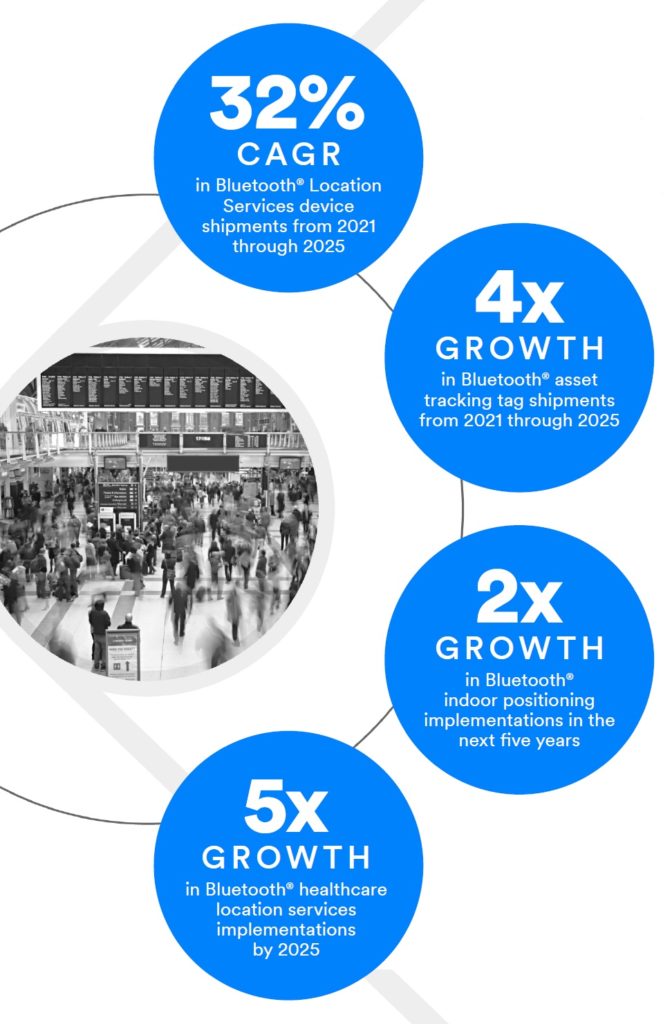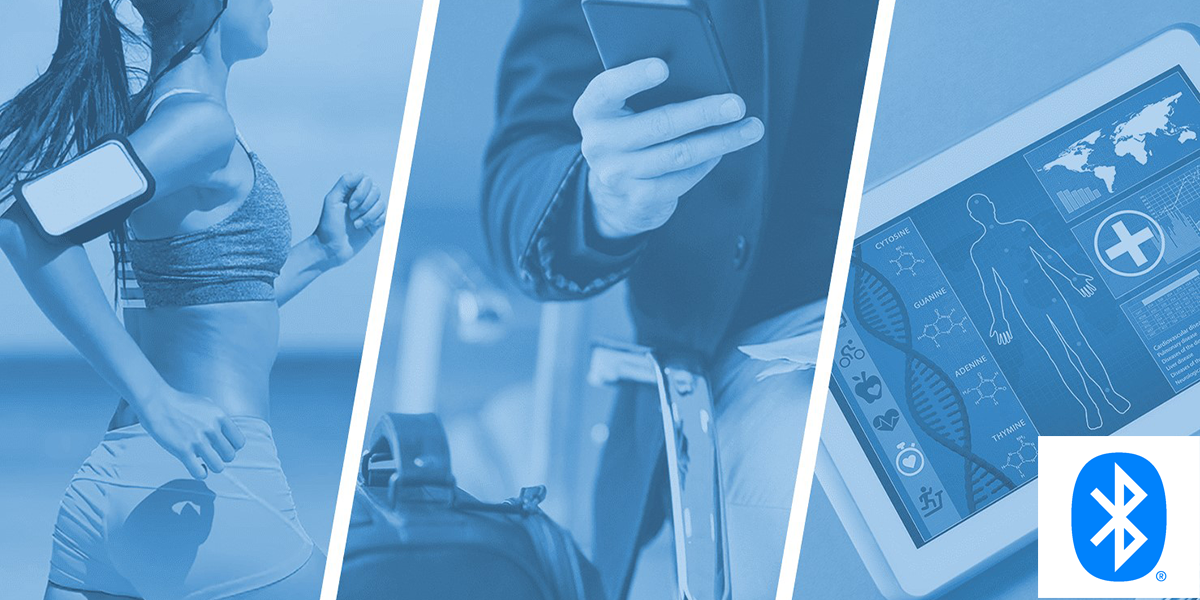From fitness wearables to medical sensors as well as Bluetooth tags and beacons for locationing, Bluetooth technology has connected billions of these everyday devices for consumer and enterprise use. According to Bluetooth SIG’s 2021 market report, new forecasts are predicting that Bluetooth technology is the number one wireless technology of choice for the Internet of Things. Let’s explore a few of these in detail.
Bluetooth wearable medical devices gain new momentum
Wearable devices and medical sensors for healthcare continue to gain mainstream acceptance. Public awareness of personal health and telemedicine requirements during the pandemic are several of the factors driving the growth of shipments of medical wearable devices. As stated in the 2021 market report, analysts are predicting that the annual device shipment forecast for wearable devices and PC accessories will increase significantly as a result of a greater focus on health and wellness as well as a shift to working from home.
According to data from the Centers for Disease Control (CDC), telemedicine has increased by 50% in the first quarter of 2020 compared with the same period in 2019. Due to the greater demand for remote monitoring and early detection of health-related issues, smart watches and wireless medical sensors are being used for continuous vital sign monitoring , personal health and wellness monitoring as well as telehealth. These are just some of the primary factors driving the growth of wearable device shipments.

Rapid growth in location services and deployments
From retail to indoor navigation, Bluetooth technology has experience significant growth for location services. From proximity services to personnel and asset tracking, indoor navigation is seeing growth for location services deployments. In fact, nearly 80% of all Bluetooth location services deployments include indoor navigation. Bluetooth tags and beacons have been widely adopted in many industries such as industrial IoT, retail, as well as healthcare because of their low cost, low power (long battery life), and ease of compatibility. Bluetooth location services rely on asset tracking to improve locationing accuracy of people and assets (i.e., equipment). In fact, an estimated 136 million Bluetooth RTLS tags as well as personal trackers will ship in 2021 alone. Analysts predict that Bluetooth asset tracking will be the leading use case for location services.

These are just a few examples of how Bluetooth technology continues to gain momentum and growth in most industries. Use cases involving Bluetooth technology are evolving and continued advancements in Bluetooth technology will only accelerate its growth in the coming years.








